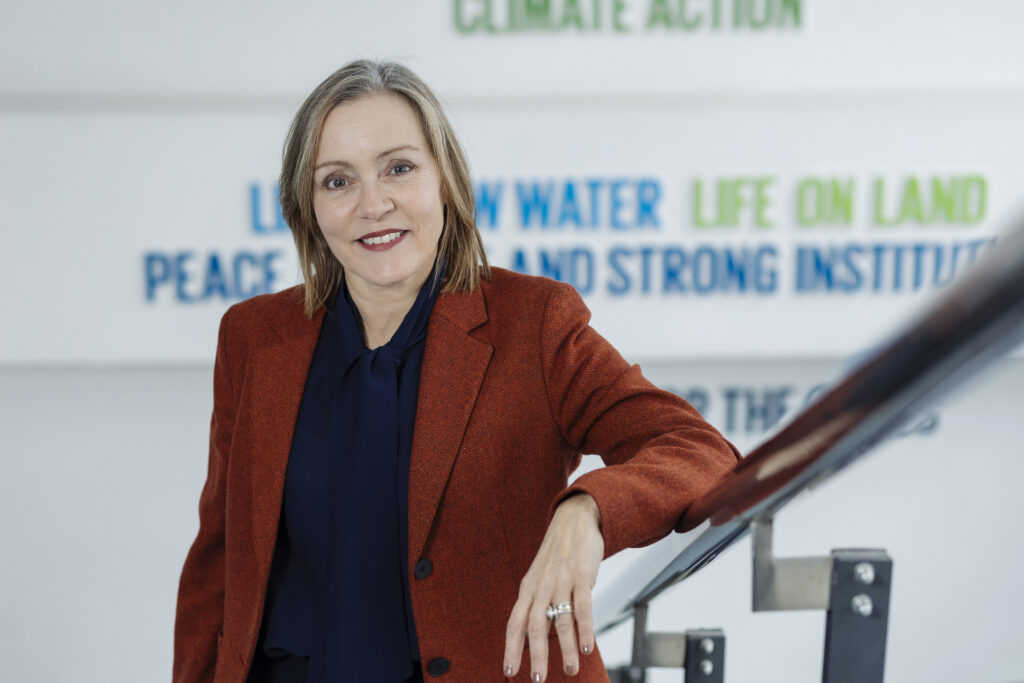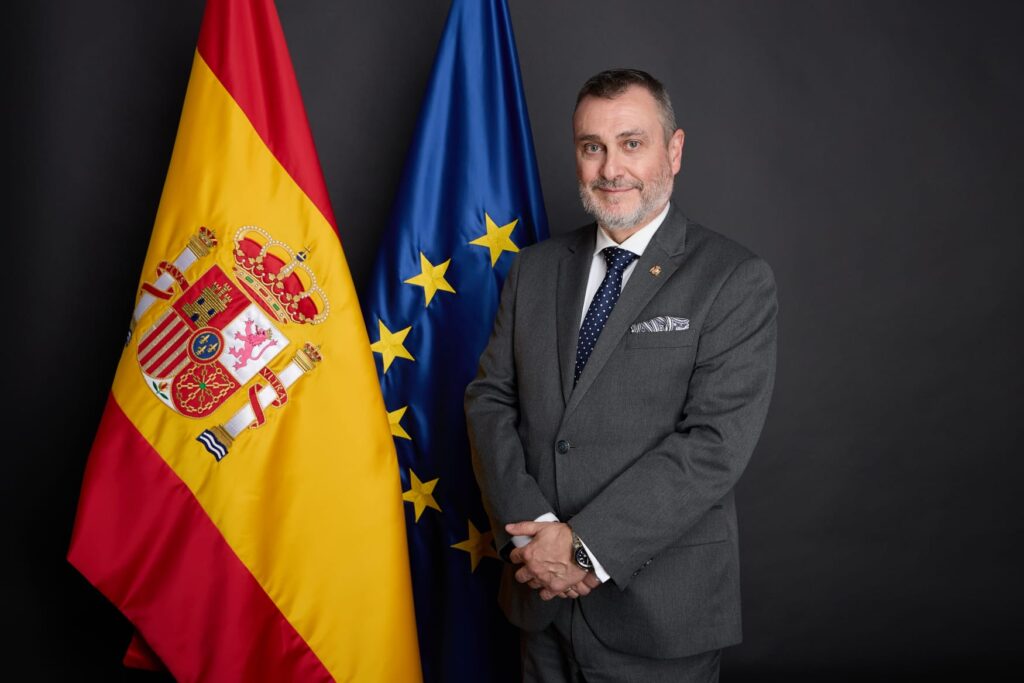Why the World — and Serbia — Can’t Afford to Wait

4th International Conference on Financing for Development
30 June – 3 July 2025
Sevilla, Spain
The conference will address new and emerging issues, the urgent need to fully implement the Sustainable Development Goals, and support reform of the international financial architecture. FFD4 will assess the progress made in the implementation of the Monterrey Consensus, the Doha Declaration and the Addis Ababa Action Agenda.
Joint op-ed by Matilde Mordt, UN Resident Coordinator in Serbia, and Juan José Sanz Aparicio, Ambassador of the Kingdom of Spain to Serbia
The world is navigating turbulent times. Global cooperation is under strain, trade barriers are rising, and progress on the Sustainable Development Goals (SDGs) is stalling. Only 17% of the SDGs are currently on track to be achieved by 2030 — a sobering figure that threatens the prospects of millions. The UN estimates a yearly funding gap of between 2.5 and 4 trillion USD to reach these goals. Meanwhile, military spending has increased every year for a decade, with a sharp rise in 2024, while humanitarian and development aid continues to decline.
Multilateral cooperation remains our best tool for addressing these global challenges. And yet, the gap between ambition and action is growing. The moment calls for a renewed global commitment — one where resources move toward equity, resilience, and sustainability, not division and delay.
In this context, the fourth Financing for Development (FfD) Conference will be held in Seville, Spain, from 30 June to 3 July. Convened by the United Nations, the conference aims to reshape the global financial system so it better supports sustainable development, mobilising both public and private capital from all available sources. It builds on the Pact for the Future, adopted by UN Member States in September 2024, which urged reforms to make international finance more accessible and committed countries to increase private sector investment through inclusive and innovative financial mechanisms.
Hosting the conference, Spain sends a strong message of commitment to multilateralism and solidarity. These principles frame the agenda set forth by UN Secretary-General António Guterres, who has identified three areas that demand urgent action:
First, tackling the burden of sovereign debt. Many developing countries are facing unsustainable debt servicing costs that leave little room for investment in health, education, or infrastructure. Debt restructuring, lower borrowing costs, and greater liquidity are needed to avoid defaults and redirect spending to national priorities.
Second, reforming the international financial architecture. Multilateral development banks need recapitalization so they can provide more concessional finance to countries most in need. Greater voice and representation for developing countries in decision-making bodies is also essential.
Financing for development is not just about numbers — it’s about delivering on the promise of the SDGs
Third, mobilising significantly more financing, from all sources, to meet sustainable development targets. This is especially relevant for countries like Serbia, which are already taking concrete steps to bridge the gap.

Public budgets remain a major driver of development finance. In Serbia, domestic public financing accounts for around 40% of total resources and has grown at an average rate of 7.2% over the past decade. Aligning public spending with sustainability priorities is essential. One concrete example is gender-responsive budgeting. Today, 90% of national and provincial budget users in Serbia include a gender perspective in their annual plans — an achievement supported by UN Women.
Another focus of the FfD is blended finance — using public funds to reduce risks and attract private investment in sectors or regions that otherwise might be overlooked. Done right, blended finance acts as a multiplier. According to EU data, each dollar of concessional finance can leverage up to 3.5 dollars in total investment.
Serbia has made notable progress in using such tools. The government has issued thematic sovereign bonds to attract sustainable investment. Its first green bond, issued in 2021, raised EUR 1 billion for infrastructure in railways, wastewater treatment, sustainable agriculture, forest protection, and waste management. In 2024, Serbia issued ESG bonds that raised USD 1.5 billion to support major projects like the Belgrade Metro, the Belgrade–Budapest railway, energy efficiency upgrades, and recycling initiatives.
The private sector plays a crucial role in advancing the SDGs, offering numerous investment opportunities. The ‘UN Sustainable Development Goals Investor Map,’ developed by UNDP, identifies five key sectors in Serbia that present profitable opportunities for sustainable investment: food and beverages, renewable and alternative energy, infrastructure, technology and communications, and health care.
De-risking mechanisms also play a key role. These include credit guarantees, concessional loans, and non-financial support such as technical assistance and capacity building. A notable example is the UNDP Innovation Challenge — supported by the EU, Sweden, and Switzerland and with additional financing from the European Investment Bank. It promotes climate-smart investments through grants, equity co-financing, and business acceleration support. Since 2017, it has mobilized over USD 12 million in private investment for startups and SMEs tackling energy, transport, and waste issues with local community benefits.
Public-Private Partnerships (PPPs) have also gained traction in Serbia. Since the Law on PPPs and Concessions came into force in 2011, over 300 projects have been approved, representing more than EUR 10 billion in value. These include initiatives in transportation, healthcare, energy, and waste, such as the Belgrade Airport expansion and the Vinča waste-to-energy plant. Serbia and UNECE recently hosted an international PPP Forum in Belgrade, where these and other investments were featured.
Looking forward, Serbia has a strong foundation to build on — and the FfD Conference presents an opportunity to take the next step. One potential leap is the creation of mission-driven financing platforms that align public and private funds with national priorities. A case in point is the proposed Just Transition Fund, which will be part of Serbia’s new Just Transition Action Plan. This fund could play a key role in financing the decommissioning of coal by 2050, supporting worker reskilling, job creation, and community revitalization in former coal regions — all designed in consultation with affected groups.
Serbia’s experience proves that with the right partnerships, even smaller economies can lead by example
Another priority is to help local governments expand their use of blended finance. Local self-governments in Serbia already apply PPPs in areas like heating, transport, and waste management. But to scale this up, they will need stronger technical, legal, and financial skills to prepare bankable projects and manage them effectively.
Over the past decade, the United Nations system in Serbia has worked closely with national and local institutions to develop policies, pilot financing models, and strengthen institutional capacities. From supporting gender budgeting to promoting inclusive green growth and just transition, these efforts demonstrate how multilateral cooperation translates into practical results.
The FfD Conference is more than a technical meeting — it’s a chance for countries like Serbia to showcase their achievements, learn from others, and help shape a more equitable financial future. Financing for development is not just about numbers. It’s about delivering on the promise of the SDGs — and ensuring that every country, regardless of size, has the tools to invest in people, planet, and prosperity.
Serbia’s experience proves that with the right partnerships, even smaller economies can lead by example. But ambition must be matched by support. As the global community gathers in Seville, the path forward is clear: investing in inclusive, sustainable development is not optional — it’s the only way forward.